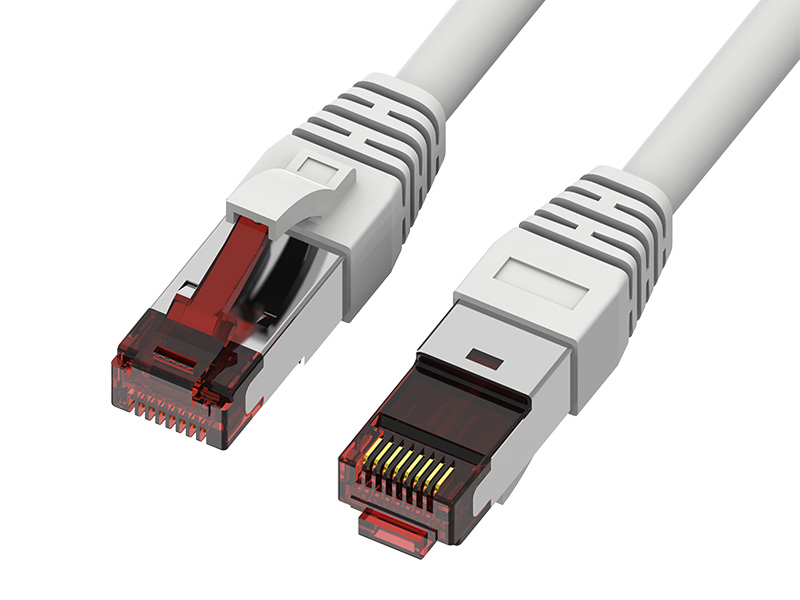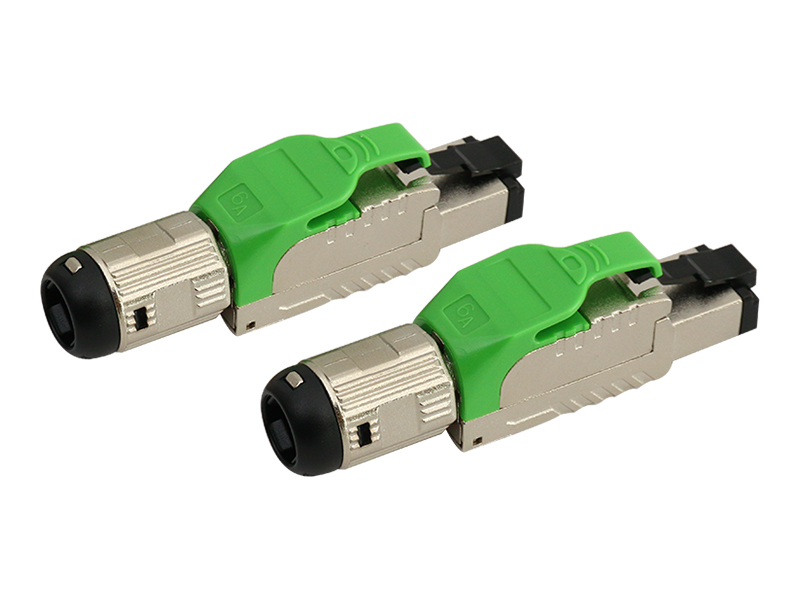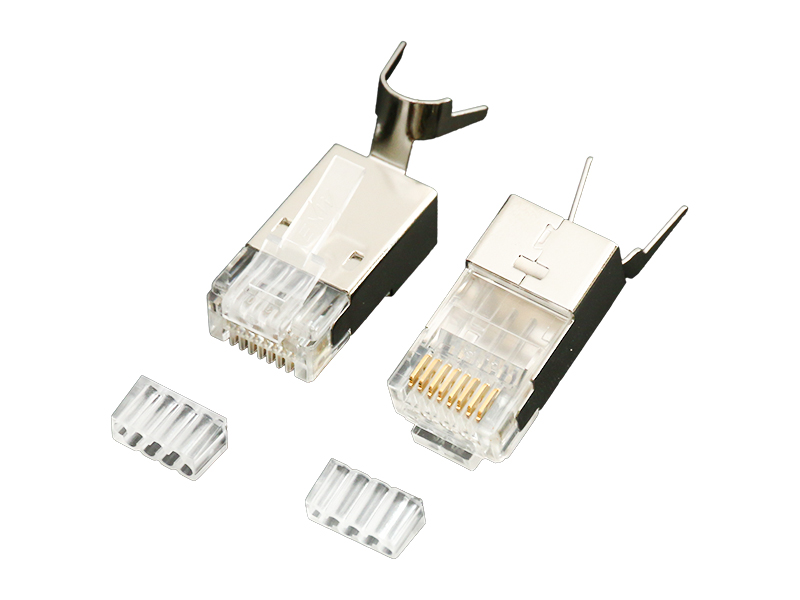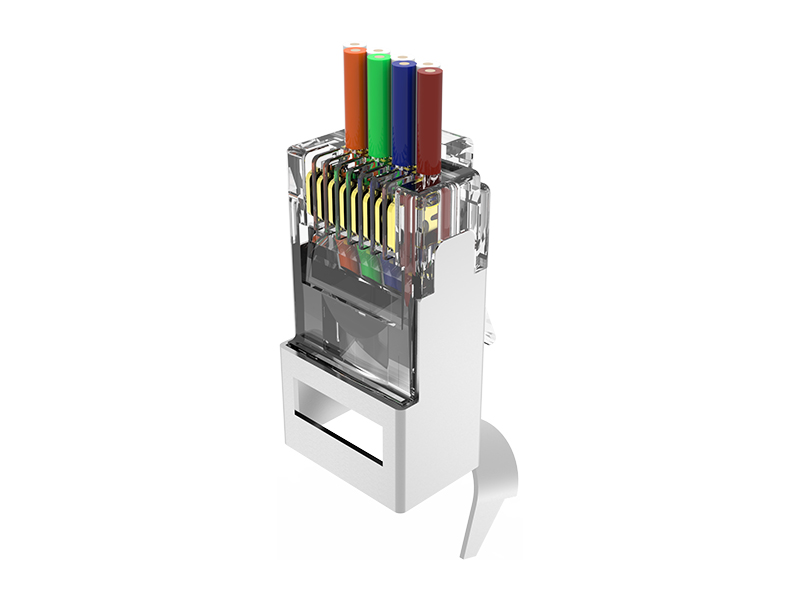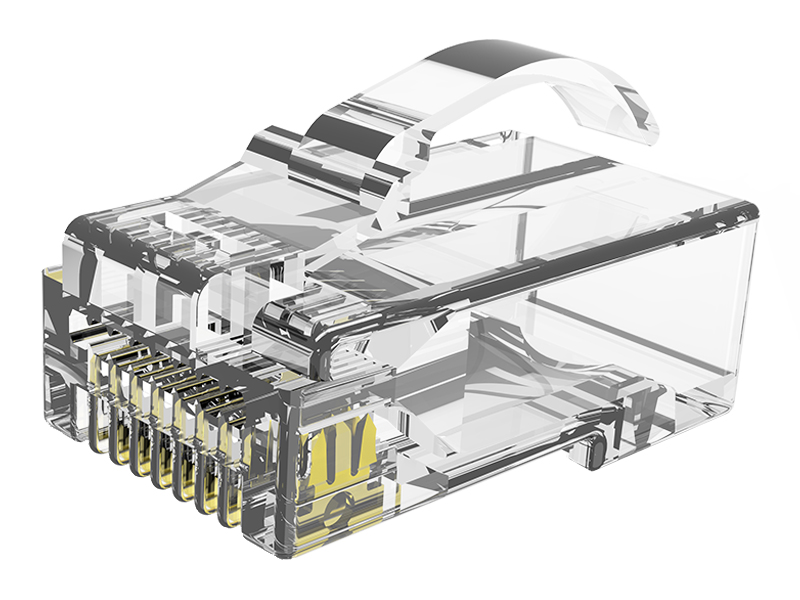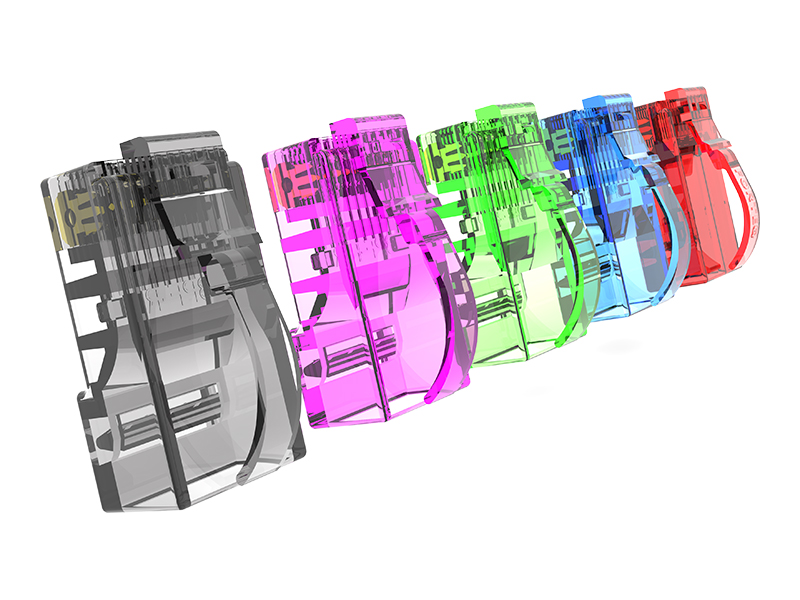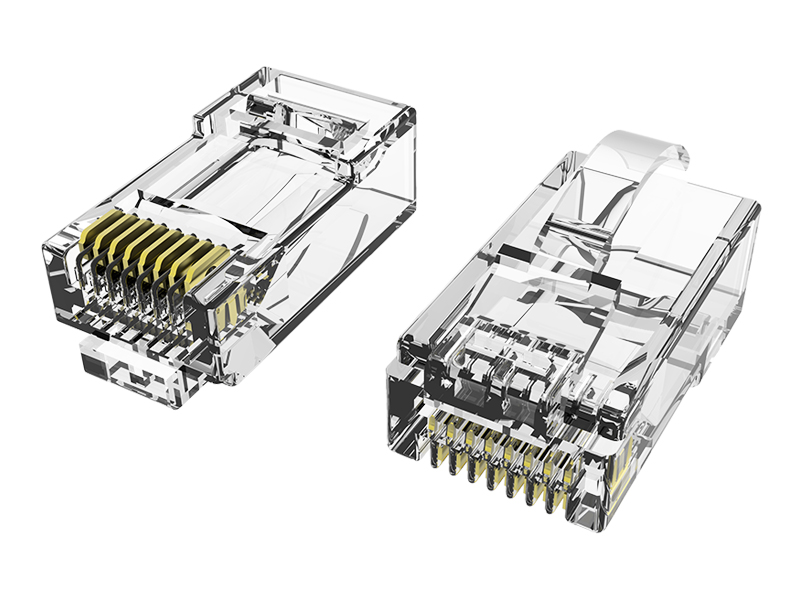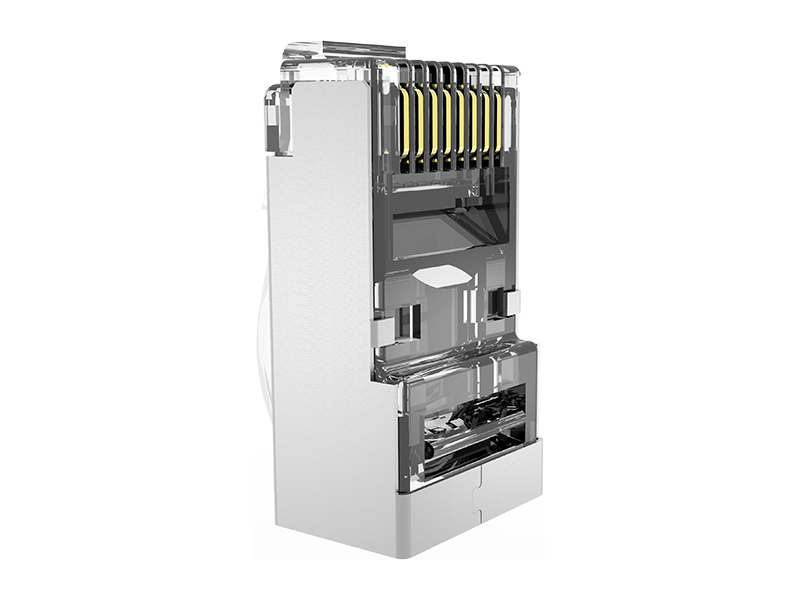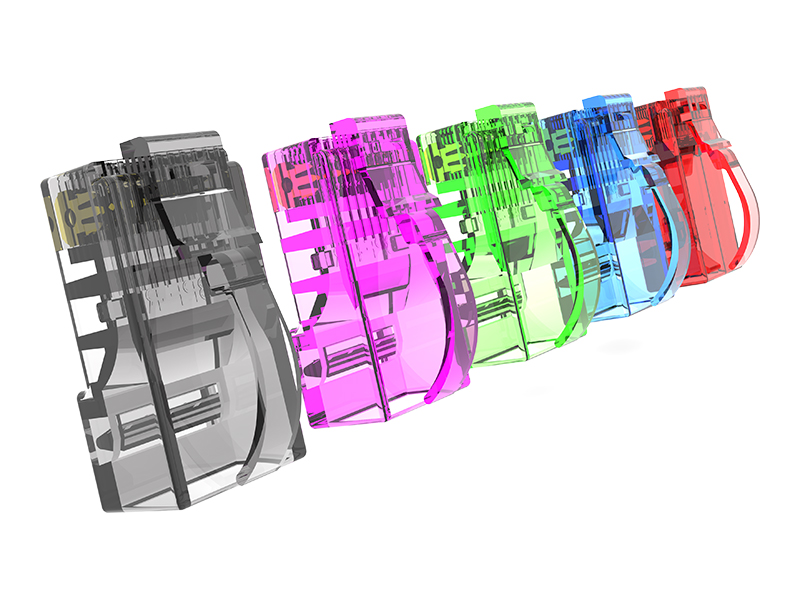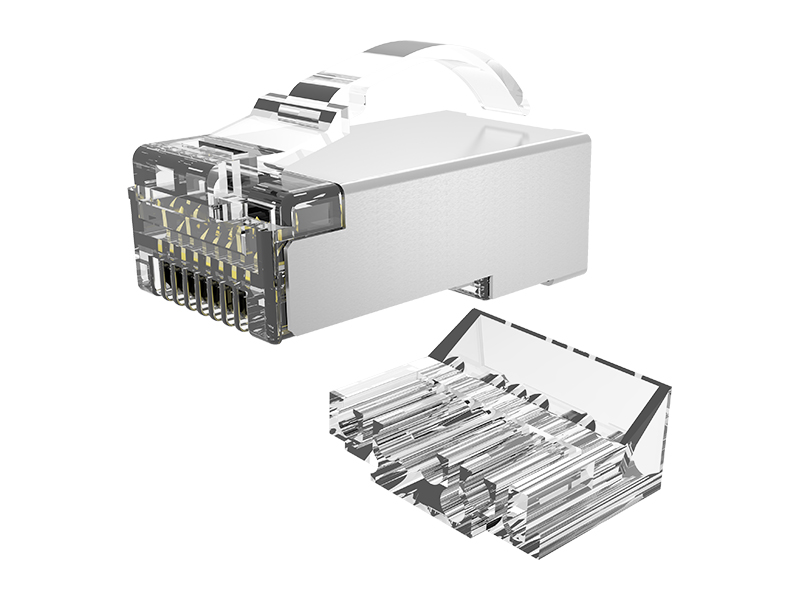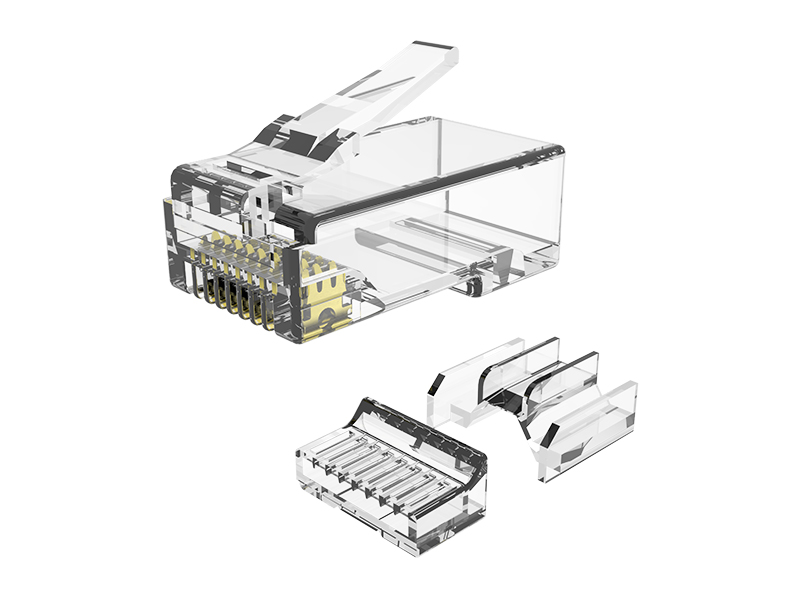Detailed Explanation of Shielded Cat.6 Arched Lock Modular Plug
Content
I. Core Function
Dual Protection Design:
Anti-interference Shielding Layer: A metal shell (zinc alloy or nickel-plated plastic) encloses the entire plug, blocking electromagnetic interference generated by motors and equipment, preventing network signal interference.
Physical Anti-Locking Lock: The arched lock (thickened, with anti-slip texture) requires thumb pressure to unlock, preventing the cable from breaking when kicked, hooked, or accidentally pulled.
II. Structural Features
Reinforced Arched Lock:
The thickened arc design makes it less prone to breakage from being run over by a cart or stepped on, making it more durable than ordinary locks.
Grounding Anti-interference:
The plug has internal metal teeth that pierce the cable shielding layer during crimping, diverting interference to the equipment's grounding terminal (such as a switch chassis).
Contact and Cable Fixation:
Gold-plated contacts prevent oxidation and remain effective even after long-term plugging and unplugging; internal serrations grip the cable sheath, providing strong tensile strength (no additional tensile fibers required).
III. Applicable Scenarios
Industrial Workshops:
Near CNC machine tools and motors—the shielding layer blocks electromagnetic interference, and the latches resist equipment vibration.
High-density Server Racks:
Data centers or server racks—the arched latches prevent adjacent cables from snagging, making insertion and removal easier.
Harsh Environments:
Humid and dusty areas—some models have waterproof rubber rings (IP68 rating) for moisture and rust prevention.
IV. Installation Points
Key Points for Shielding Layer Treatment:
After stripping the cable, fold the metal shielding mesh back to cover the outer sheath, ensuring the metal teeth pierce the shielding layer during crimping.
Latch Usage Tips:
A "click" sound when inserting the device indicates the latch is engaged; when disassembling, press the latch at an angle (not vertically) to avoid breakage.
V. Common Mistakes to Avoid
Ignoring Grounding:
The shielding layer does not contact the plug's metal shell — Interference with the incoming signal line, causing a sharp drop in network speed.
Forceful Insertion and Removal:
Pulling the cable directly instead of pressing the latch — Latch breakage or contact deformation.
Mixing unshielded components:
Using with unshielded network cables — Shielding fails, performance is equivalent to a regular plug.
VI. Advantages compared to regular Cat.6 plugs
| Scenario | Shielded Cat.6 Arch Latch Plug | Standard Plug Risk |
|---|---|---|
| Near motors/equipment | Zero packet loss – Blocks electromagnetic interference | Frequent disconnects – EMI throttles speed |
| Cable snags in racks | Latch locks securely – Survives tugs and kicks | Plugs pop out – Devices go offline |
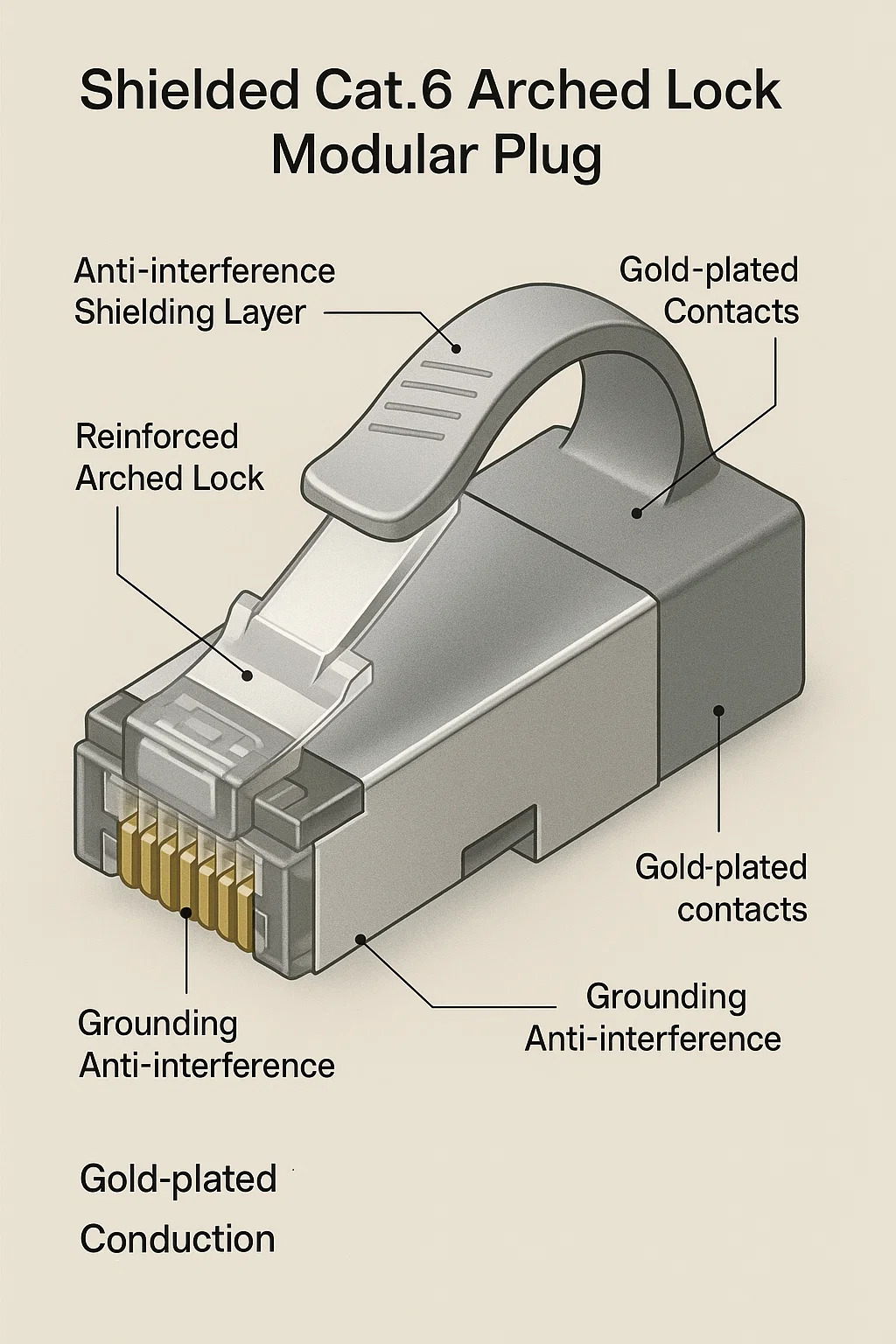



 中文简体
中文简体 English
English Français
Français Deutsch
Deutsch عربى
عربى

